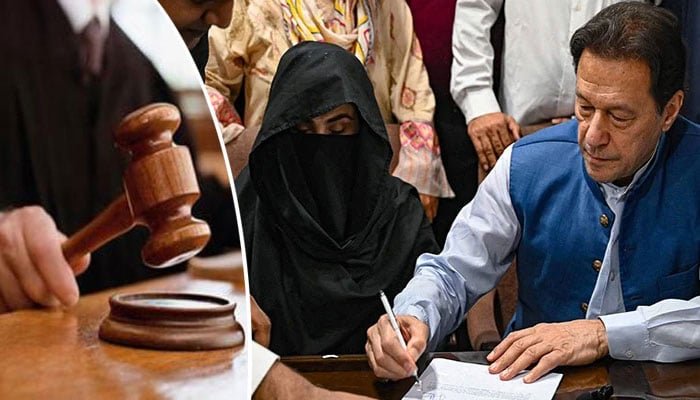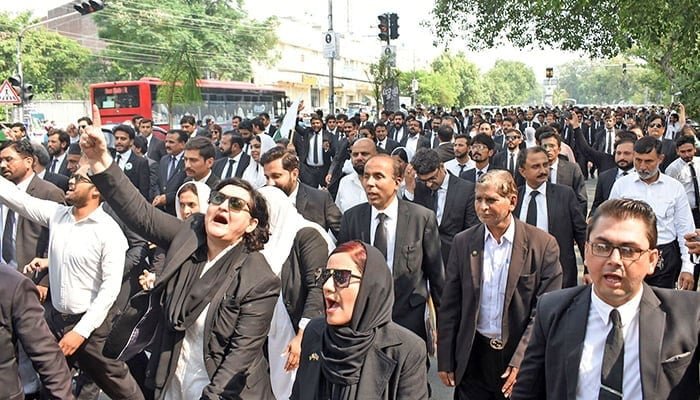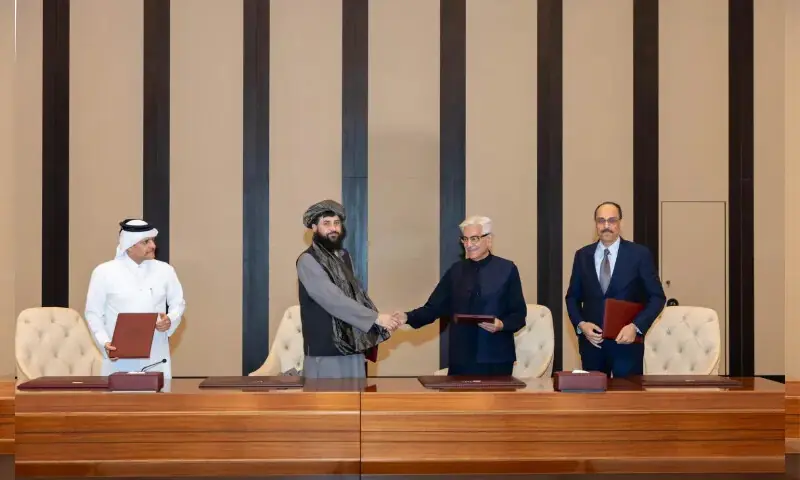Roman Ali Awan
The term “Achilles’ Heel” originates from Greek mythology, where the hero Achilles was invulnerable except for a small spot on his heel, which ultimately led to his downfall. In modern parlance, it refers to a weak point or vulnerability in an otherwise strong or seemingly invincible person or situation. Applying this metaphor to Imran Khan and his political trajectory, some critics argue that his wife, Bushra Bibi, could become his Achilles’ heel. This contention arises particularly in the context of her emerging role in leading the Pakistan Tehreek-e-Insaf (PTI) party, her perceived lack of political acumen, and the consequences of introducing an element of dynastic politics in the party, especially given the party’s previously stated opposition to inheritance-based politics.
The Politics of Inheritance and Its Relevance to PTI
Pakistan’s political landscape has long been characterized by dynastic politics, with major political families like the Bhuttos, Sharifs, and others passing leadership roles from one generation to the next. PTI, under Imran Khan’s leadership, presented itself as an alternative to this system. Imran Khan’s narrative focused on meritocracy, transparency, and the promise to dismantle the traditional political elite. His success, to a large extent, was built on the idea that PTI would be a break from the hereditary political dynasties that had dominated Pakistan’s political sphere for decades.
Imran Khan’s rise to prominence was not based on family connections, but on his personal charisma, cricketing fame, and the ideological stand that he was different from the status quo. His political brand was built on challenging the politics of inheritance. Therefore, any move towards dynastic leadership within PTI, especially involving Bushra Bibi, could be seen as a betrayal of these principles.
Bushra Bibi’s Role in PTI’s Political Landscape
Since Imran Khan’s incarceration, PTI has been grappling with a leadership vacuum. Gohar Khan, the current party chairman, has faced accusations of not effectively communicating or representing the party’s stance. As a result, Bushra Bibi has started to step into the political spotlight, increasingly becoming involved in party affairs. While it is natural for the spouse of a prominent political leader to provide support and even participate in political activities, the question arises as to whether Bushra Bibi is equipped to lead PTI.
Bushra Bibi has been portrayed largely as a religious figure rather than a political one. Her public image is heavily associated with her role as Imran Khan’s wife, and there is little evidence to suggest that she has developed a distinct political identity or vision separate from her husband’s. In fact, her recent comments on matters of diplomacy, particularly with regard to Pakistan’s relations with Saudi Arabia, raised concerns about her political competency. Such statements, which seemed to undermine important foreign relations, were seen by some as indicative of a lack of political nuance and strategic thinking. As a leader of PTI, Bushra Bibi’s lack of a clear political vision could hinder the party’s progress and cause confusion within its ranks, further eroding its credibility as a party of change.
Is Bushra Bibi Politically Competent?
Bushra Bibi’s background and political involvement have been limited up to this point, and there is little evidence to suggest that she has been directly involved in shaping PTI’s policy or leadership decisions before Imran Khan’s imprisonment. Her primary role in the public eye has been as Imran Khan’s wife, a position that, while influential, does not necessarily equip her to lead a political party.
In the competitive and often volatile world of Pakistani politics, effective leadership requires a deep understanding of the issues facing the country, a strong strategic mind, and the ability to build alliances both domestically and internationally. While Bushra Bibi may have strong personal qualities that make her a respected figure among some PTI supporters, political leadership requires more than respect—it requires expertise, experience, and a clear, actionable vision for the future.
PTI, in particular, needs leadership that can navigate the complex political landscape and present a coherent vision to the people of Pakistan. While Bushra Bibi’s involvement may help consolidate support within certain circles, her lack of political experience could render her ill-suited to handle the nuanced challenges that come with leading a national political party. In the absence of Imran Khan, PTI requires someone who can assertively lead, engage with various factions of society, and present a vision for the future of Pakistan. These are qualities that Bushra Bibi has not demonstrated in her public appearances so far.
The Risk of Dynastic Politics
Dynastic politics have long been a point of criticism for PTI, which positioned itself as the antidote to Pakistan’s hereditary political system. If Bushra Bibi were to lead PTI, it would undoubtedly give the impression that PTI, despite its rhetoric, is embracing dynastic leadership. This would be a significant blow to PTI’s credibility and would likely alienate many of its supporters who joined the party because of its promise to break free from dynastic politics.
The fear among political pundits is that Bushra Bibi’s leadership could inadvertently validate the very political system that PTI has long criticized. Imran Khan, who built his political career on opposition to family-based politics, could risk tarnishing his legacy if his wife assumes a leading role in the party. This would raise questions about whether PTI is truly committed to its core values or whether it has simply become another political party that prioritizes family over merit.
Impact on Imran Khan’s Political Future
Imran Khan’s political future is already precarious due to his imprisonment. His party, PTI, is facing internal divisions, external pressures, and accusations of inefficiency. If Bushra Bibi were to take a prominent role in PTI, it could exacerbate these challenges. The focus could shift from the political issues facing the country to the personal dynamics within the party, which may further undermine PTI’s image.
Political pundits argue that while Bushra Bibi’s intentions may be to protect Imran Khan’s legacy, her leadership could become counterproductive. If PTI were to become associated with a figure who is perceived as politically inexperienced and lacking in vision, it could alienate not only the public but also key party members who feel that the party should be led by someone more competent.
Moreover, the public’s perception of Imran Khan’s leadership could suffer if his wife were to lead the party in his absence. Imran Khan has long been seen as a charismatic leader, and his personal connection with the people of Pakistan has been a key factor in PTI’s popularity. If Bushra Bibi assumes leadership, the focus could shift away from Imran Khan’s vision and towards his family’s control of the party. This shift could dilute his appeal and undermine his position as a populist leader.
Accordingly, the idea that Bushra Bibi could be Imran Khan’s Achilles’ heel is a valid concern, particularly given the political and ideological contradictions her leadership would present. While she may play a supportive role in PTI, the prospect of her taking over the party could undermine the core values of PTI and harm Imran Khan’s political legacy. Her lack of political experience, combined with the risks associated with dynastic leadership, could lead to the downfall of PTI and tarnish Imran Khan’s status as a leader who rose above Pakistan’s traditional political dynasties. If PTI is to remain a viable alternative to Pakistan’s entrenched political families, it must avoid falling into the trap of inheritance-based politics and focus on cultivating a leadership that is both competent and visionary.















